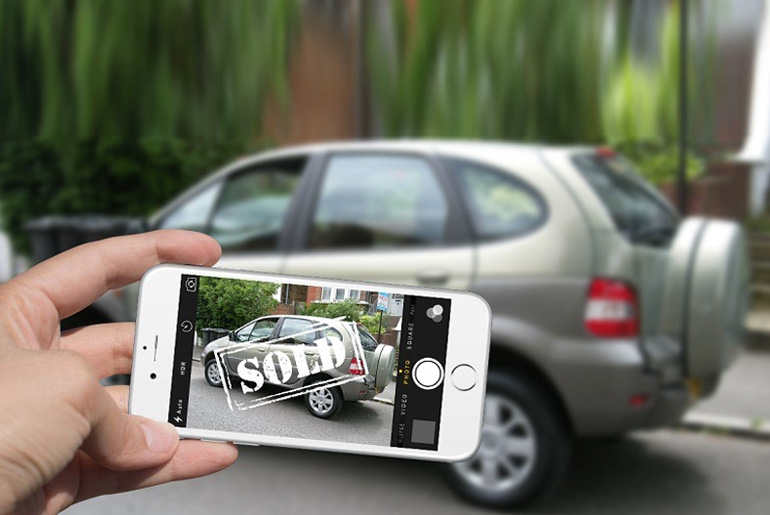Engine sounds are very common
Table of Contents
Everyone agrees on the fact that cars can make weird noises. If the sound is closer to a “knock”, you may be dealing with problems under the hood, problems that could cause engine damage if left unresolved. We are writing this blog as another informative post to educate everyone about maintaining their car’s engine.
Buy top trending Car accessories in Lagos and Original Korea Battery now Check @carfanzy Lagos on Instagram
What is an Engine Knock?
The engine knock or pinging occurs when a separate pocket of air-fuel mixture ignites after the spark has ignited the air-fuel mixture within the combustion chamber. The fuel-air charge is meant to be ignited by the spark plug only, and at a precise point in the piston’s stroke. Knock occurs when the peak of the combustion process no longer occurs at the optimum moment for the four-stroke cycle. Here are some simple steps for you to know the causes and avoid “Engine Knocking” without much expense.
Why is My Engine Knocking?
Now that you know what engine knocking is, let’s take a look at some of the causes.
- Low Oil
One of the most common causes of engine knocking is low oil. If your car has been using more oil than usual, it’s a good idea to top it off. You can also try using a higher-quality oil, as this can help reduce engine wear. It’s important to regularly change your oil because dirty oil can also cause knocking.
- Old Spark Plugs
Another possible cause is dirty or old spark plugs. Spark plugs that are overdue for a replacement can cause engine knocking, as can plugs that are dirty or covered in oil. Replacing your spark plugs may help fix the issue.
- Faulty Fuel Pump
A faulty fuel pump can also cause engine knocking. This is because a faulty fuel pump will not be able to properly deliver fuel to the engine. When this happens, the air/fuel mixture can become too rich, which can cause the engine to knock. If you think that your fuel pump may be the problem, it’s a good idea to have it checked by a professional.
- Bad Gaskets or Seals
Gaskets and seals are important for preventing leaks in your engine. If these gaskets or seals are faulty, it can cause the engine to knock. If you think this may be the problem, you can try replacing the gaskets or seals yourself, or take your car to a mechanic for repair.
- Damaged Piston
A damaged piston can also cause engine knocking. This is because a damaged piston can no longer accurately compress the air/fuel mixture, which can lead to knocking. If you think your piston may be damaged, it’s best to have a professional take a look at your car.
How To Avoid Engine Knocking
Cleaning the combustion chamber:
Check your cylinder for carbon build-up every 100 hours of operation in order to be safe. The wrong kind of fuel will not just result in knocking but can also leave excess contaminants in your cylinders. These impurities can contribute to engine knocking. As such, making sure your combustion chamber is clean is essential to keeping those unwanted noises away.
You can add a detergent to your fuel to pull off this job. Fuel additives are available at our parts store so it’s easy to invest in one. Be sure, though, to follow the directions on the bottle before pouring it into your gas tank.
Checking the spark plugs:
Actual parts of your car can also be the reason for engine knocking. For instance, the spark plugs. Your engine’s spark plugs deliver the electric spark that ignites the cylinder’s fuel/air mixture. Not only can they be the cause of these strange noises, but they are also bad for your engine overall.
Fortunately, spark plug replacement is a pretty budget-friendly fix. So make it a habit of doing a routine check of your spark plugs.
Keeping the car’s timing in check:
In order to do this, you must first locate the timing mark on your engine. It’s usually found in a small gap in the transmission bell housing. After that, you need to identify the spark plug number you should check for engine timing. Refer to your car’s service manual to be sure, especially when it is a cheap used car. Before starting the test, it is advised to safely park your car and let your engine warm up first.
Then connect the timing light to your number one spark plug, aim it at the timing mark, and record the results to interpret the numbers accordingly. If your numbers are in the range specified in your owner’s manual, then there’s no need to alter your timing. However, if otherwise, you should adjust your timing to fix the knocking.
Conclusion
Engine knock sounds shouldn’t give you serious concerns if you follow these tips. But even after all these procedures ensure you take your car to the mechanic for proper inspection.
Have 1 million naira and above to Buy or Sell Cars In Nigeria? Check Carmart.ng RIght Now
All rights reserved. Reproduction, publication, broadcasting, rewriting, or redistribution of this material and other digital content on carmart.ng is strictly prohibited without prior express written permission from Carmart Nigeria - Contact: [email protected]
Stay informed and ahead of the New Car info! Follow The Carmart Blog on WhatsApp for real-time updates, Cheap Cars, and Latest new car content. Don't miss Any –
Join The Carmart Blog Channel








1 Comment
Engine knock is mostly caused by less oil in the system, but thanks for bringing up some other causes too